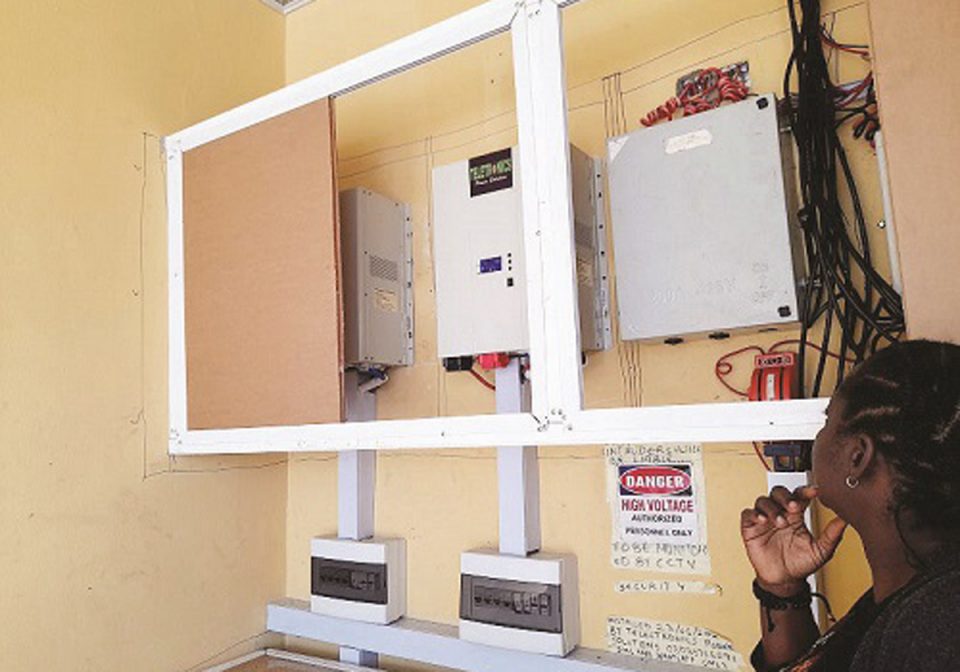Medical services at the Federal Medical Centre, Owo in Ondo State has improved. This is due to the availability of a constant power supply at the critical section of the hospital. The constant power supply is a result of investment in renewal energy by the hospital’s management, which has led to independent power generation of 0.1megawatts. The hospital is shifting away from the old expensive ways of generating power from diesel generators and unreliable power from the national grid towards the green and clean energy from the solar system.
Sections of the hospital currently enjoying constant power supply are the Accident & Adult Emergency unit, supplied with 15KVA, Children Emergency had 20KVA, Main Laboratory had 5KVA, Medical Record had 10KVA, Neo-Natal 5KVA, GOPD/Electronic Medical Record/Family Medicine 15KVA, CEPI 10KVA and the new Isolation ward supplied with 15KVA.
Besides the main hospital, the use of renewable energy has been introduced to the hospital’s annexes at Akure and Oka Akoko. A visit to the hospital showed that over six power generating sets have been put out of use since the hospital embraced solar powered energy.
The Deputy Director and Head of Works Department of the hospital, Oluwaseye Ogunlade, said the hospital opted for green energy due to irregular power supply from the national grid. He said most time the power from the National grid could not power most equipment in the hospital.
“That was why we went for green energy. Moreover, human lives are involved and we need to save lives. We need constant electricity and we can only get that through green energy. Our COVID-19 ward has 15 Kva. The power supply will last five days without sunlight and there is no way in Nigeria you will not see sunlight so the power storage is assured.
“The power from the green energy has boost morale of workers here. It has provided a conducive environment for the patients and the workers. Anybody is eager to work in a conducive environment. The patients are now happy. We have been depending on generators. We discovered that the amount we spent on running generators is high compared to the use of solar power. You service generators but with green energy, you do not need to put anybody there to monitor its operation. It is self-running. It does not need fuel.
“We have a lot of generators here. But the amount we spent on those generators is high. In the long run, solar power is cheaper than the generator. You have to have people monitor how the generators but solar power does not need monitoring.
“The engineers employed to monitor the generators are still there. We are not sacking them. The generators now serve as a backup. We still have the equipment we still need to power with generators like the radiology department.
- One of the sections enjoying constant power
“Our cost of purchasing diesel has reduced even though we have not put any generator out of use but the introduction of green energy has reduced maintenance cost of the generators.
“The contractor handling the project is expected to train our staff on the maintenance of the solar power and unless there is a major problem, that is when we called in the contractor. The project cost included supply, installation, commission and training.
“We have started extending the use of green energy to other facilities outside Owo.”
Adedayo Afe, an engineer, stated that the most sensitive areas of the hospital being powered by solar power. She said the hospital would need to generate between two and three megawatts for all sections of the hospital to be using solar power.
The Chief Technical Officer of Telectronics Power Solutions, Egberongbe Adetunji Isa, said there were plans by the hospital’s management to extend the solar system to every existing medical department, including the administrative building. He noted that in the nearest future the FMC Owo would be powered solely by green energy which is pollutants free.
“One of the advantages is that it is maintenance-free, with some solar panels and industrial batteries with a lifespan of up to 20years or more although we still give simple preventive and curative maintenance tips to some of the technical staff at the works and services department which is Headed by Engineer Paul. We also installed several DC/AC protective gadgets to guide the systems from damages that could arise from external factors,” he said.




